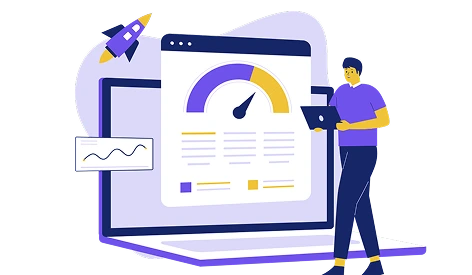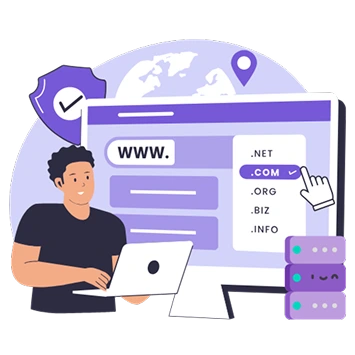Designed to grow your business online with a fast, secure website – plus free hosting and domain for 1 year.

Our websites are built to grow your business and attract more customers.

Get free hosting and a domain for 1 year, saving you ₹3,000 instantly.

Easily update your website anytime using our drag-and-drop editor, no coding needed.

Improve search rankings and deliver a seamless experience on desktop, tablet, and mobile.

Enjoy fast-loading websites with top-notch security to protect your data and users.

Get a professional website starting at ₹8,999—affordable, transparent, and great value.

Our dedicated support team is available 24/7 to assist you with any technical issues.
Getting your website live is quick and hassle-free with our easy process.

Pick the website design package that best fits your business needs and budget.

Provide details like your preferred design, content, and features through a simple form or consultation.

Our experts will design, customize, and launch your fully responsive website within the agreed timeline.

Choose from our professionally crafted designs or get a custom design tailored to your need
Simple, transparent pricing—choose a plan that fits your business needs.
+18% GST
+18% GST
+18% GST
No Limits! Get the Website You Imagine
We create a fully unique website tailored to your business needs, ensuring a modern and professional look.
Grow without limits! Add as many pages and products as your business requires.
Integrate AI chatbots, CRM, booking systems, payment gateways, and more for a powerful, high-performance website.



A domain name is your website’s unique address on the internet (e.g., www.yourbusiness.com). It helps people find your website easily instead of using long technical server addresses.
Web hosting is a service that stores your website files and makes them accessible online. Without hosting, your website cannot be viewed on the internet. We provide free hosting for 1 year with all our website plans.
The time required depends on the type of website:
Yes! All websites we build are 100% responsive, meaning they work perfectly on mobile, tablet, and desktop devices for a smooth user experience.
Yes! We offer free support for 6 months after your website launch. After that, you can choose a maintenance plan for regular updates, security, and performance improvements.
Yes! We use WordPress CMS, which allows you to easily update text, images, and even add new pages without coding knowledge. We also provide a short training session on how to manage your website.
You can always request additional features like payment gateways, CRM, or custom forms anytime. We provide upgrade options so your website can grow with your business.

Launch 2021. H2HOSTY Private Limited Give you chance to Start Your Website With Our Fastest NvMe SSD Servers
Company Registration No: U62012HR2023PTC110631
Copyright 2024 H2HOSTY All Rights Reserved.
Address:
Panchkula Haryana, India, 134107
Email:
support@h2hosty.in
